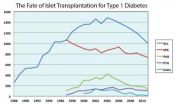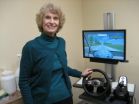(Press-News.org) Patients who received help from a poison center had shorter hospital stays and lower hospital charges among those who are the most expensive to treat, according to a study led by researchers at the University of Illinois at Chicago School of Public Health.
Poison centers provide 24-hour assistance year round to the public and to medical professionals. While studies show that poison centers reduce system-wide costs, their impact on patient outcomes at the hospital level has not been clear, the study's authors report.
The researchers conducted a retrospective analysis of inpatients treated in Illinois hospitals in 2010. They linked data from the Illinois Poison Center to medical record data from the Illinois Hospital Association and controlled for patient- and facility-level variables.
Nearly 10,000 hospitalized patients treated for poison exposure were included in the study, and half received poison center assistance during the course of their treatment.
"We found that if the poison center was involved in patients' care there was a cumulative decrease of $2,078 in hospital charges per 10 patients," said Lee Friedman, assistant professor of environmental and occupational health sciences at UIC and lead author of the study, which was published in the March issue of Clinical Toxicology.
Hospital emergency rooms that placed calls to the Illinois Poison Center saved $2.1 million for the 10,272 patients they admitted for care in 2010, the researchers estimate. Had all 166,949 patients who were admitted to Illinois hospitals due to poisoning received assistance from a poison center, a potential savings of $34.6 million may have been realized.
The study also found the length of stay among poison center assisted patients was .058 days shorter, after adjusting for multiple variables.
Poison centers across the nation are not securely funded and often must depend on a combination of local discretionary support and donations, despite numerous studies showing that they provide system-wide savings by preventing poisonings, reducing unnecessary hospital visits and, as shown in this study, reducing cost of hospitalizations. Many poison centers have been closed or forced to reduce services due to budget cutbacks. It is estimated that only half of the U.S. population has access to a certified regional poison center, and Illinois' poison center is slated to close in June if funding is not secured.
"This study shows that hospitals, insurance companies, and government benefit financially from poison centers," said Friedman, "and an equitable system of cost sharing should be developed to ensure that poison centers can continue to provide services to the community."
INFORMATION:
Coauthors include Alison Krajewski, Ember Vannoy and Amy Allegretti of UIC, and Mike Wahl of the Illinois Poison Center and Northshore University Health System.
Poison Centers benefit patients, reduce medical costs, study finds
2014-03-11
ELSE PRESS RELEASES FROM THIS DATE:
New organ transplant strategy aims to better prevent rejection
2014-03-11
Organ-transplant recipients often reject donated organs, but a new, two-pronged strategy developed by UC San Francisco researchers to specifically weaken immune responses that target transplanted tissue has shown promise in controlled experiments on mice.
The hope is that using this novel treatment strategy at the time of transplantation surgery could spare patients from lifelong immunosuppressive treatments and their side effects. The approach might also be used to treat autoimmune diseases such as type 1 diabetes, the researchers said. The study is published and commented ...
Bending the light with a tiny chip
2014-03-11
Imagine that you are in a meeting with coworkers or at a gathering of friends. You pull out your cell phone to show a presentation or a video on YouTube. But you don't use the tiny screen; your phone projects a bright, clear image onto a wall or a big screen. Such a technology may be on its way, thanks to a new light-bending silicon chip developed by researchers at Caltech.
The chip was developed by Ali Hajimiri, Thomas G. Myers Professor of Electrical Engineering, and researchers in his laboratory. The results were presented at the Optical Fiber Communication (OFC) conference ...
Detecting, testing, treating rare diseases: Technology delivers new era of personalization
2014-03-11
LOS ANGELES (March 10, 2014) – A team of researchers from the National Institutes of Health, Emory University and Cedars-Sinai – specialists in identifying and treating very rare diseases – used three innovative tools to detect a previously unknown gene mutation, test potential therapies in the lab, and initiate personalized drug treatment for a boy with a lifelong history of uncontrollable seizures that caused significant impact on his cognitive and social development.
"This personalized medical approach exemplifies the power of current research tools and shows the immense ...
Study using driving simulator determines when it's safe to drive after hip replacement
2014-03-11
After hip replacement surgery, many patients are anxious to resume driving, and a new study challenges the conventional wisdom that patients should wait six weeks before getting back behind the wheel. Dr. Geoffrey Westrich, director of research, Adult Reconstruction and Joint Replacement at Hospital for Special Surgery in New York City, found that patients in the study were able to return to driving four weeks after total hip replacement.
The study, titled, "A Novel Assessment of Driving Reaction Time Following THR Using a New Fully Interactive Driving Simulator," will ...
New MRI can 'see through' metal screws to follow patients after hip fracture surgery
2014-03-11
People who sustain the most common type of hip fracture, known as a femoral neck fracture, are at increased risk of complications. A special type of MRI developed at Hospital for Special Surgery in collaboration with GE Healthcare can show a detailed image following fracture repair, without the distortion caused by metal surgical screws that are problematic in standard MRIs.
Each year, more than 340,000 people suffer a broken hip in the United States. The femoral neck, the area just below the ball of the hip's ball-and-socket joint, is the most common site of fracture, ...
Study: Women report more pain than men after knee replacement surgery
2014-03-11
Middle-aged women with rheumatoid arthritis or arthritis resulting from an injury are among the patients most likely to experience serious pain following a knee replacement, researchers from Hospital for Special Surgery (HSS) in New York have found.
One of the biggest concerns patients have is the amount of pain they will have after knee replacement surgery. Although it is a very successful operation overall to relieve arthritis pain and restore function, persistent postoperative pain can be a problem for some patients. Researchers at HSS set out to determine which groups ...
Personality may be key risk factor in preventive health care
2014-03-11
WASHINGTON – When it comes to helping young adults avoid serious health problems later in life, assessing their personalities during routine medical exams could prove as useful as recording their family medical histories and smoking habits, according to new research published by the American Psychological Association.
"Health care reform provides a great opportunity for preventive care, with physicians seeing more young adults who may not previously have had insurance," said lead author Salomon Israel, PhD, of Duke University and Duke University Medical Center. "Our research ...
UGA researchers identify decision-making center of brain
2014-03-11
Athens, Ga. – Although choosing to do something because the perceived benefit outweighs the financial cost is something people do daily, little is known about what happens in the brain when a person makes these kinds of decisions. Studying how these cost-benefit decisions are made when choosing to consume alcohol, University of Georgia associate professor of psychology James MacKillop identified distinct profiles of brain activity that are present when making these decisions.
"We were interested in understanding how the brain makes decisions about drinking alcohol. Particularly, ...
A new cell type is implicated in epilepsy caused by traumatic brain injury
2014-03-11
BOSTON (March 11, 2014) — Traumatic brain injury is a risk factor for epilepsy, though the relationship is not understood. A new study in mice, published in Cerebral Cortex, identifies increased levels of a specific neurotransmitter as a contributing factor connecting traumatic brain injury (TBI) to post-traumatic epilepsy. The findings suggest that damage to brain cells called interneurons disrupts neurotransmitter levels and plays a role in the development of epilepsy after a traumatic brain injury.
The research team, led by David Cantu and Chris Dulla, studied the ...
Scientists unlock potential heart attack drug without side effects
2014-03-11
Melbourne scientists are a step closer to creating a new drug to stop a heart attack in its tracks and reduce the damage caused, without any side effects.
The Monash University research, published today in the journal, Proceedings of the National Academy of Sciences, USA (PNAS), offers new hope to thousands of people who experience heart attacks and heart failure – one of the major causes of death worldwide.
Professors Arthur Christopoulos and Peter Scammells from the Monash Institute of Pharmaceutical Sciences (MIPS) led a team of scientists combining molecular pharmacology ...

